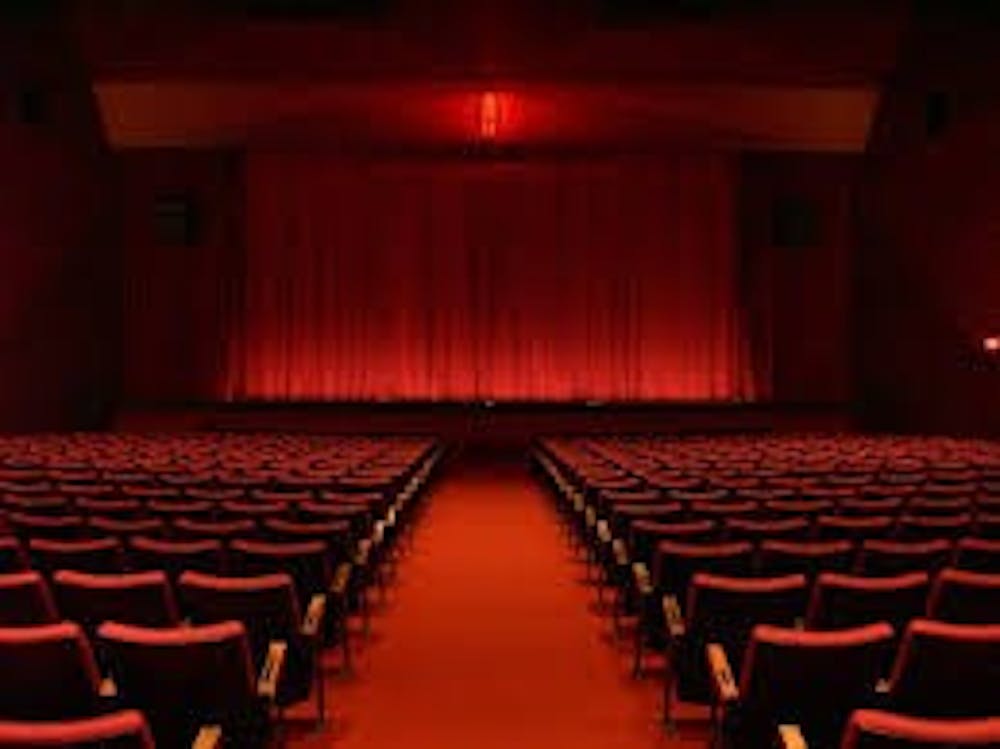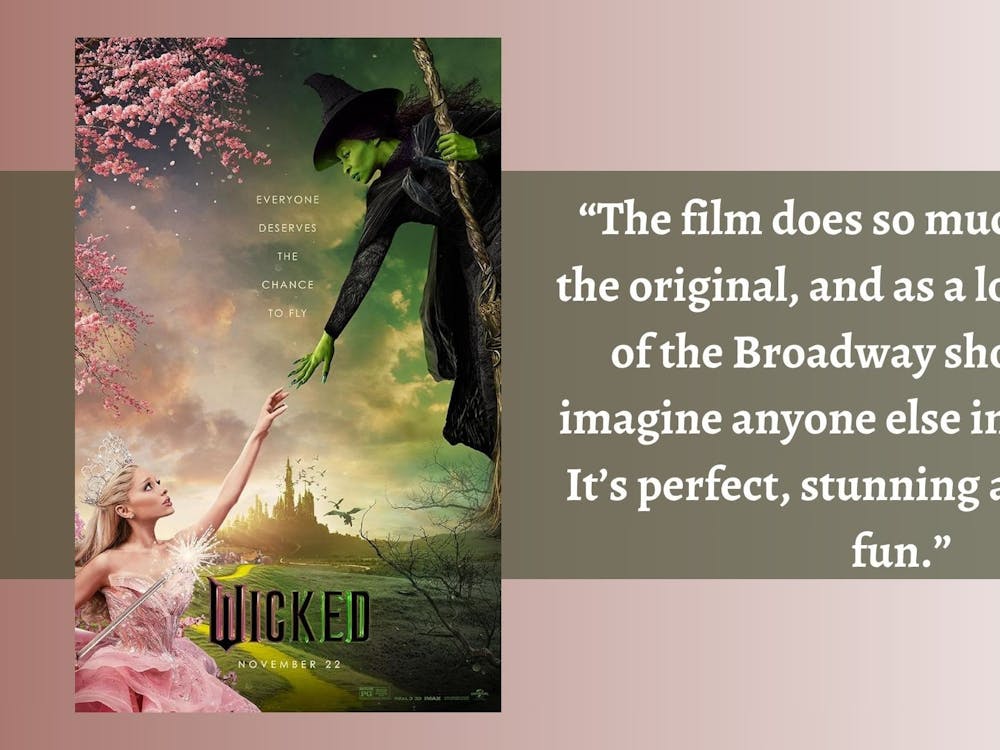By Joey McClure, Staff Writer
A classic horror film trope is the disabled monster. Whether it be the legless zombie, the deformed inbred man or the mentally deranged serial killer, the horror genre uses disabilities to distance the able-bodied audience from the monster's identity.
"Don't Breathe," the home invasion horror directed by Fede Alvarez, plays with this trope. The film follows three young adults breaking into wealthy suburban homes of Detroit, stealing valuables and selling them on the black market.
One of the delinquents, Alex (Dylan Minnette), uses the house keys of the customers of his father's security company to break into the homes without setting off the alarm. After the three are done stealing watches and jewelry, Alex throws a rock through the window to stage a less sophisticated break-in and keep his father's company innocent.
Once the crew gets wind of a resident hiding $300,000 in his home, they know that this break-in has a large enough reward to be their last. However, there is a twist. The resident of the house is a blind veteran (Stephen Lang) and he never leaves his home in an empty, rundown Detroit neighborhood.
When the group discovers the man's disability, it creates a moral dilemma for Alex. He asks, "It's kinda messed up to rob a blind guy, isn't it?" The most criminal of the group, Money (Daniel Zovatto), retorts, "Just because he is blind doesn't make him a saint, bro."
In many ways, these two lines sum up the genius of "Don't Breathe" and the way the film explores the genre's conventions. Initially, the viewer feels sympathetic for the blind man and questions the morality of the three hoodlums. But once the crew breaks into the house and the audience learns more and more about the resident, the blind man slowly becomes the monster that we are so used to.
This simultaneously presents and solves one of the big problems with horror films today. Many horror films present a villain that is evil just for the hell of it. Instead, Alvarez presents a fleshed out character, and his actions, although disgusting, are weirdly understandable.
This is what is so terrifying about "Don't Breathe." Even though the resident is an evil man and his disability distances himself even further from the able-bodied audience, the viewer can still identify with the monster.
The film is also a technical achievement. It has a masterful sound design that imitates the blind man's hearing. Since he relies heavily on sound to make up for his disability, loud noises, such as a drying machine, are amplified and show how the lack of silence completely disorients him. The sound design also allows the audience to hear every character's breath. This not only builds incredible amounts of tensions, but it causes the audience themselves to literally not breathe in the film's quiet scenes. Thus, the title is very fitting.
"Don't Breathe" has a dazzling long shot moving freely throughout the house that sets the stage by revealing all of the house's props, an idea borrowed from David Fincher's home invasion thriller "Panic Room."
Yet, the best and most terrifying scene in the movie is the 10-minute chase in complete darkness. Alvarez uses an infrared camera to show the young criminals stumbling around in a pitch black basement with their pupils dilated, looking completely hopeless.
Enjoy what you're reading?
Signup for our newsletter
"Don't Breathe" has its faults, however. The performances are split. Rocky, the last of the criminals, is played excellently by Jane Levy, and Lang's villain is a horrifying and realistic portrayal of a wicked blind man. However, the performances from Minnette and Zovatto feel very forced.
In fact, anything before and after the break-in feels forced. Rocky has an incredibly generic relationship with her little sister and her abusive, alcoholic mother. Money's character is too corrupt to be hanging with the other two moral young adults. And the film's ending does not make any sense as it tries to make a statement about how our world is so unjust.
Where "Don't Breathe" really succeeds is in the blind man's home where the tense, breath-holding scenes take place.
3.5/5 Stars




